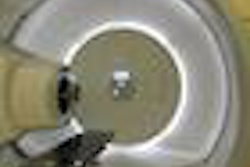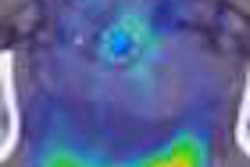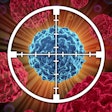A long-term analysis of the outcomes of prostate cancer patients who received radiation therapy showed recurrence was rare if the patient had a low prostate-specific antigen (PSA) score 15 years after treatment. The findings were published in the March issue of the Journal of Urology.
As long as a patient's PSA was less than 0.20 ng/mL 15 years following treatment, the chance of a later prostate cancer recurrence was low, the authors concluded.
The study analyzed outcomes of 3,546 consecutive hormone-naive men who were treated with an iodine-125 prostate implant followed by external-beam radiation between 1984 and 2000 at the Radiotherapy Clinics of Georgia in Decatur. This community-based center collected and maintained a clinical records database of all its prostate cancer patients over 30 years (J Urol, March 2013, Vol. 189:3, pp. 878-883).
Although treatment protocols changed over time, all patients underwent electron-beam radiotherapy (EBRT) 21 days after radioactive seed implantation. The men received a daily dose of 150 cGy for 30 treatments. The total EBRT dose was 4,500 cGy to the prostate and periprostatic tissue.
Dr. Frank Critz, the center's medical director, and colleagues reported that seminal vesicle implantation began in 1994, and these organs were then included in EBRT. Beginning in 1995, a 750-cGy boost was given to the prostate base and seminal vesicles in men with base involvement, PSA greater than 10 ng/mL, or a Gleason score of 7 or greater. Also, starting in 1994, nonradioactive gold seeds were inserted along with the radioactive iodine seeds to improve targeting.
For all patients, the disease-free survival rates at 10, 15, 20, and 25 years were 75%, 73%, 73%, and 73%, respectively. For more recently treated patients who benefited from improvements in radiotherapy technology, the 15-year disease-free survival rate was 79%.
In all, 313 men in the study developed a cancer recurrence. Most recurrences (236 patients) occurred within the first five years after treatment; only 16 patients had a recurrence after the 10-year follow-up.
"At least 15 years of follow-up are necessary to fully evaluate any prostate cancer treatment," the authors concluded. "Furthermore, if prostate-specific antigen is less than 0.20 ng/mL 15 years after treatment, later recurrence should be unlikely."



















